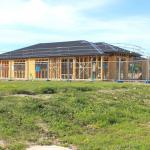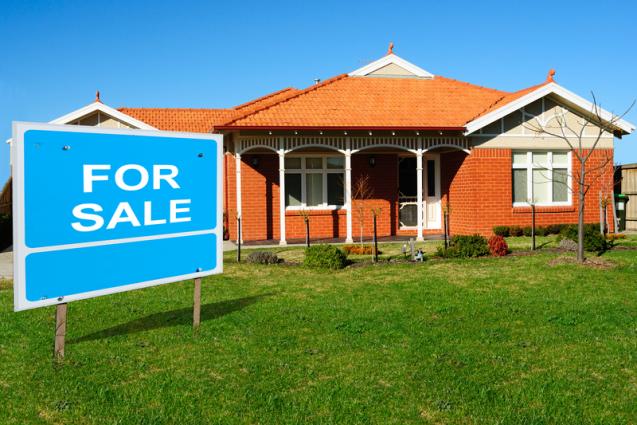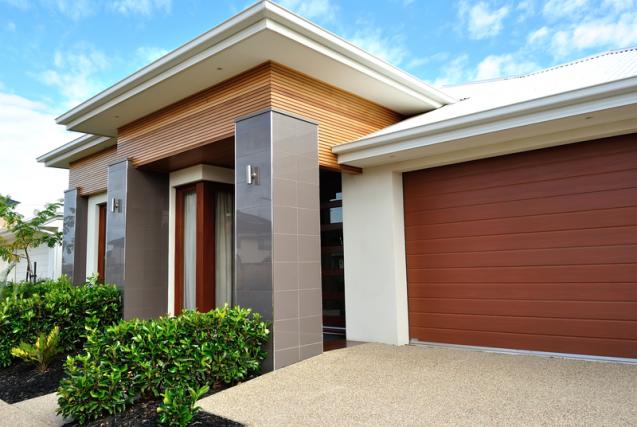
A Quick Guide To Getting Construction Loans
Construction loans are for people who are looking to build or renovate or extend on their existing home. Banks and lenders are always going to be cautious about just handing money out for these types of loans.
There are going to be a number of requirements for people who are looking for construction loans before a bank will approve their applications. Some of these conditions can include, having council-approved plans and a licensed builder who's got insurance.
All the necessary documentation needed for lodgment with council at the end to have an approved dwelling. You need to provide these documents and hand it over to your broker to make sure that those are lodged at the time of the lending.
Pros
You can be sure that you're not going to be ripped off.
Instead of getting a large amount of money that you're not entirely sure is going to the right people, when it's done in its stage draws [stage draws are how a lender will pay].
Generally at each stage, they will send a valuer to make sure that the completed works have been done as per the contract. On some of the bigger projects, or more expensive projects, it might even involve a quality surveyor or building surveyor.
Cons
In some cases, if it's not a brand new build with a standard building contract, there might be some slight delays in getting payments to the builder. It can be anywhere from a few days to a week, which can be upsetting to the builder as they are going to pay their contractors and suppliers as opposed to just handing over the money to the builder when they make the demand during the build.
READ MORE: Save thousands as an Owner Builder
Construction Vs. Owner-builder Loans
Construction loans generally are done with the builder's contract or licensed builder and set a plan that has been approved by the council.
With the owner-builder loan, the head contractor is actually the owner-builder themselves and that they will need to provide significantly more documentations to give counter to the bank that (1) the project will come in on cost and (2) the people know enough about construction so that it will not run over time. A lot of lenders have had bad experiences with these that is why they are very cautious on approving owner-builder loans.
Who can apply for construction loans?
Anyone can apply for construction loans or owner-builder loans. They just have to make sure that all of the documentation is in order and that's why it's best to work with a broker for this. It is because there are a lot of requirements and jargons that they might haven't experienced in the past.
Requirements
All of the traditional items needed for getting a mortgage will be needed, but the following are commonly required: evidence of income, ownership or title on land,rates notices, identification, proof of any savings or equity held.
Because of the intricacy of applying for the loan and the number of documents required, it's best to work with someone who has a lot of experience in applying for these types of loans as this can make the process so much easier.
Borrowers are also encouraged to choose a lender that actually has an appetite for this type of lending as opposed to just another product in a lender's suite of offerings. Many clients have been unhappy with outcomes just because a lender can do them, but doesn't do enough of them to warrant having a large team for stage draws.
READ MORE: How Do Owner-builder Loans Work?
Deposit
Depending if it's a new build and the developer has the land or if the developer does a land and house package, sometimes, less than 5% is needed.
But generally, if someone is building a new extension into their home or renovations or if they are building a new home with an architect or a designer, they're going to need 20% as a deposit.
That's not always set in stone and it's best to discuss your particular circumstances with a broker.
How much can someone borrow
The loan amount is not necessarily just based on the contract to build. It is usually determined by looking at certain aspects, including: assessment of your income, likely future income [if you're a builder-owner and you're busy building your own house then obviously that comes off your income for the year].
When the lender is looking at all of the details of your income, sources of income, sources of deposit, likelihood that that's going to continue through to the end of the project; these factors are what best determine your maximum borrowing capacity, not necessarily what's being on your payslip today.
Things that are usually considered in determining the loan amount, such as:
###
Darin Hindmarsh is the founder and CEO of Intellichoice Finance, a broking firm based in Brisbane. He's been providing financial and broking services in the past 18 years. Hindmarsh is also finalist in the 2020 Australian Mortgage Awards - Pepper Money Broker of the Year – Specialist Lending. To jumpstart your home loan application, visit their home loan online application page today.!
There are going to be a number of requirements for people who are looking for construction loans before a bank will approve their applications. Some of these conditions can include, having council-approved plans and a licensed builder who's got insurance.
All the necessary documentation needed for lodgment with council at the end to have an approved dwelling. You need to provide these documents and hand it over to your broker to make sure that those are lodged at the time of the lending.
Pros
You can be sure that you're not going to be ripped off.
Instead of getting a large amount of money that you're not entirely sure is going to the right people, when it's done in its stage draws [stage draws are how a lender will pay].
Generally at each stage, they will send a valuer to make sure that the completed works have been done as per the contract. On some of the bigger projects, or more expensive projects, it might even involve a quality surveyor or building surveyor.
Cons
In some cases, if it's not a brand new build with a standard building contract, there might be some slight delays in getting payments to the builder. It can be anywhere from a few days to a week, which can be upsetting to the builder as they are going to pay their contractors and suppliers as opposed to just handing over the money to the builder when they make the demand during the build.
READ MORE: Save thousands as an Owner Builder
Construction Vs. Owner-builder Loans
Construction loans generally are done with the builder's contract or licensed builder and set a plan that has been approved by the council.
With the owner-builder loan, the head contractor is actually the owner-builder themselves and that they will need to provide significantly more documentations to give counter to the bank that (1) the project will come in on cost and (2) the people know enough about construction so that it will not run over time. A lot of lenders have had bad experiences with these that is why they are very cautious on approving owner-builder loans.
Who can apply for construction loans?
Anyone can apply for construction loans or owner-builder loans. They just have to make sure that all of the documentation is in order and that's why it's best to work with a broker for this. It is because there are a lot of requirements and jargons that they might haven't experienced in the past.
Requirements
All of the traditional items needed for getting a mortgage will be needed, but the following are commonly required: evidence of income, ownership or title on land,rates notices, identification, proof of any savings or equity held.
Because of the intricacy of applying for the loan and the number of documents required, it's best to work with someone who has a lot of experience in applying for these types of loans as this can make the process so much easier.
Borrowers are also encouraged to choose a lender that actually has an appetite for this type of lending as opposed to just another product in a lender's suite of offerings. Many clients have been unhappy with outcomes just because a lender can do them, but doesn't do enough of them to warrant having a large team for stage draws.
READ MORE: How Do Owner-builder Loans Work?
Deposit
Depending if it's a new build and the developer has the land or if the developer does a land and house package, sometimes, less than 5% is needed.
But generally, if someone is building a new extension into their home or renovations or if they are building a new home with an architect or a designer, they're going to need 20% as a deposit.
That's not always set in stone and it's best to discuss your particular circumstances with a broker.
How much can someone borrow
The loan amount is not necessarily just based on the contract to build. It is usually determined by looking at certain aspects, including: assessment of your income, likely future income [if you're a builder-owner and you're busy building your own house then obviously that comes off your income for the year].
When the lender is looking at all of the details of your income, sources of income, sources of deposit, likelihood that that's going to continue through to the end of the project; these factors are what best determine your maximum borrowing capacity, not necessarily what's being on your payslip today.
Things that are usually considered in determining the loan amount, such as:
- on-completion value of the property
- cost of construction
- the on-completion value
- future rental income
- Fire-sale value
###
Darin Hindmarsh is the founder and CEO of Intellichoice Finance, a broking firm based in Brisbane. He's been providing financial and broking services in the past 18 years. Hindmarsh is also finalist in the 2020 Australian Mortgage Awards - Pepper Money Broker of the Year – Specialist Lending. To jumpstart your home loan application, visit their home loan online application page today.!



